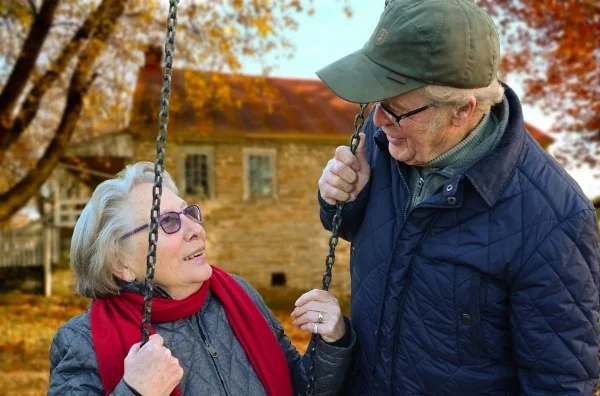Now wave those Valentines goodbye, because it’s Valen-time to show some love to your BFFs!
Read MoreIf you find yourself in a room of loved ones with no idea what to do, this is the holiday activity list for you.
Read MoreHave you considered that your costume can break the ice for you?
Read MoreThere’s no single way to live a healthy life, but people living in Blue Zones have a few ideas.
Read MoreFeedback is a powerful tool for reflection and self-improvement. Can you take the heat?
Read MoreSkip the Small Talk founder Ashley Kirsner joined Chase and Sarah Kosterlitz of I Do Podcast to share actionable tips for engaging partners, friends and family in deeper conversations.
Read MoreCalling all Boston folks! If you love (1) Skip the Small Talk and (2) The Great Outdoors™️, well then boy do we have a treat for you.
Read MoreTake advantage of the extra Vitamin D and open yourself up to new connections. You never know who you might meet!
Read MoreMove over dating, the scariest part of adulthood isn’t finding love, it’s making new friends!
Read MoreOops.. you did it again! You’ve found yourself in a difficult situation that you’ve been in many times before!
Read MoreAt Skip the Small Talks, we ask attendees to have compassion for others and for themselves as they try out new ways to hold conversations. It’s probably obvious why we care about people having compassion for each other at an event where strangers are getting to know each other for the first time, but equally if not more important in that context is self-compassion. That’s because any attempt at change or improvement generally goes much more smoothly if you’re not beating yourself up after every setback. Connecting genuinely often requires taking some risks (like sharing things that feel a little vulnerable), and having compassion for yourself when those risks don’t pan out the way you hope can help you continue taking some risks in the long-term, and can help make the learning process easier for you in the short-term.
Read More“Kill your darlings, kill your darlings, even when it breaks your egocentric little scribbler’s heart, kill your darlings,” said Stephen King, riffing off of a William Faulkner quote about writing. King and Faulkner were pointing out that the best writers are willing to erase portions of their writing that don't fit the larger story, even if the writing itself is good.
It’s the same with conversations. The best conversationalists are willing to go with the flow instead of trying to insert a thought from a few minutes ago wherever they can, even if that thought is clever, funny, or insightful. They're willing to give up contributing any given idea in order to be more present.
Ah, the holidays: A time when we hope our lives will look like those wholesome cartoon specials we watched as children, but also a time when anxieties about getting stuck in conversation with people who hold different political and moral ideologies might keep you from doing that happy dance from A Charlie Brown Christmas.
This Thanksgiving, we encourage you to take some time to connect with others in ways that feel authentic without feeling emotionally exhausting. To help the conversation flow, we offer you some ice-breakers that will get others to share about themselves while subtly nudging everyone’s mood in a positive direction. So if you do end up having the “here’s why racism is bad” conversation with Uncle Joe, you’ll have a buffer of positive experience--and perhaps some common ground--that’ll make it easier for you to communicate with one another.
Imagine you’re in an animated conversation with someone. You both laugh at something together, but then your chuckles trail off and you’re left in silence. What now?
Do you say something immediately? Do you wait for the other person to say something, no matter how long that takes? Do you jump in with whatever enters your head? Of course, it likely differs from situation to situation, but you probably average some number of seconds before you say something new if the other person doesn’t say anything, and you probably don’t stray too far from that average too often.
What do the following have in common?
- A “define the relationship” conversation with a crush
- Mentioning to your roommate that you never check your Facebook messages
- Telling your friend that the way he acts when he’s angry is scary to you
We’ve all been there. You’re at a party, and somebody asks you a small talk question that you’re afraid will beget more small talk and before you know it, you’re thirty minutes deep into a discussion about traffic patterns in your local area. Whether the question that somebody is asking you is, “Where are you from?” Or, “Wasn’t the traffic getting here awful?” You can prevent your conversation from slipping into a night of small talk by responding the following way:
Read MoreImagine you’re hanging out with a friend.
You’ve been chatting for a bit, and they reveal something more vulnerable about themselves than they usually discuss with you. Maybe it’s admitting that they feel lonely at work, or maybe it’s talking about their history with depression. Whatever it is, it’s a level or two deeper than your usual conversations.
How do you respond?
Read More
















